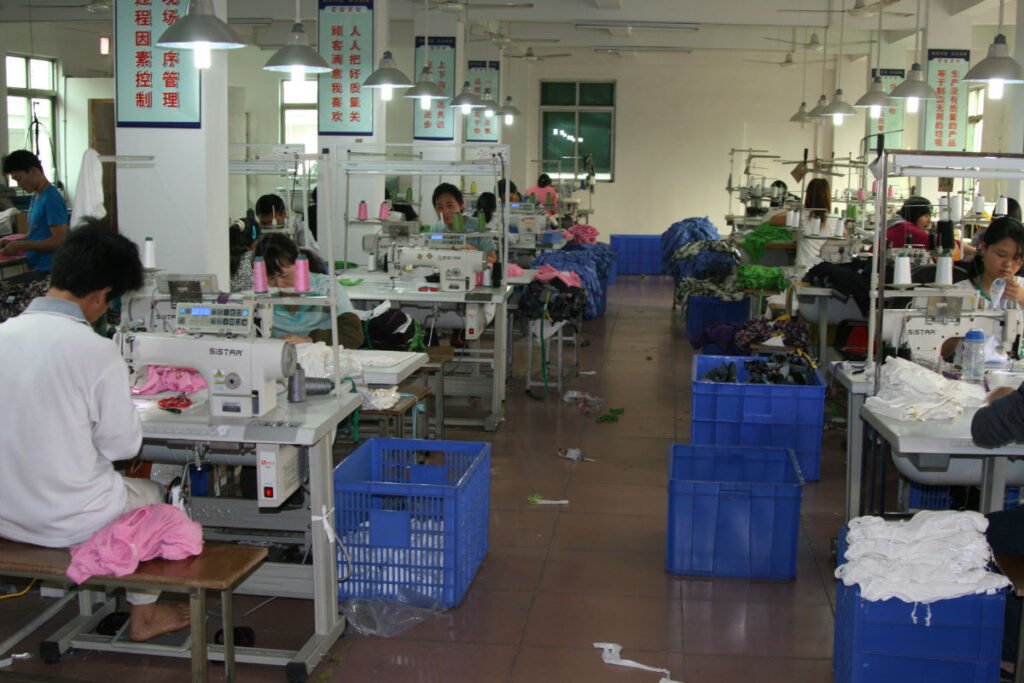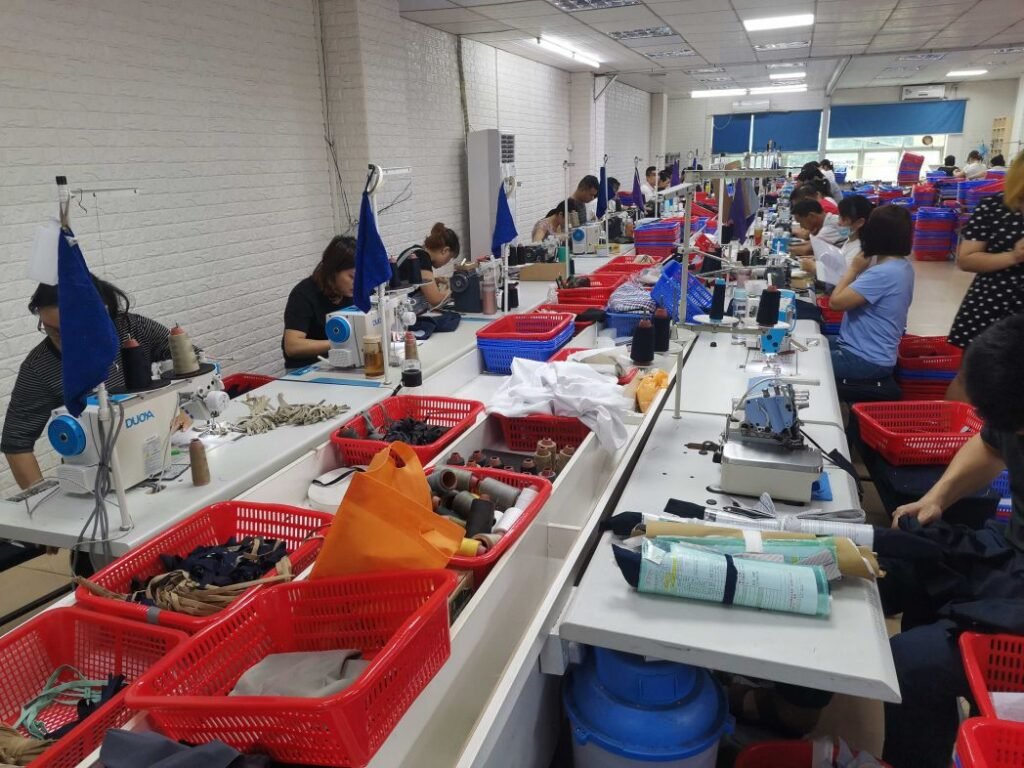No products in the cart.
Custom Yoga Pants
Organic Clothing Wholesale: Eco-Friendly Apparel for Conscious Consumers
Organic Clothing Wholesale: Eco-Friendly Apparel for Conscious Consumers
Introduction to Organic Clothing Wholesale
In recent years, there has been a growing awareness and concern about the environmental impact of the fashion industry. As a result, many consumers are now seeking out sustainable and eco-friendly alternatives to traditional clothing. One such option is organic clothing, which is made from materials that are grown without the use of harmful chemicals or pesticides. Organic clothing wholesale offers a way for conscious consumers to access these eco-friendly apparel options at affordable prices.

Benefits of Choosing Organic Clothing
Choosing organic clothing has numerous benefits, both for the environment and for personal health. Firstly, organic clothing is made from natural fibers, such as organic cotton, hemp, or bamboo, which are grown without the use of synthetic fertilizers or pesticides. This means that the production of organic clothing has a significantly lower impact on soil and water quality compared to conventional clothing.
Furthermore, organic clothing is also better for the health of the wearer. Conventional clothing often contains traces of harmful chemicals, such as formaldehyde or heavy metals, which can be absorbed through the skin. Organic clothing, on the other hand, is free from these toxic substances, making it a safer and healthier choice for individuals with sensitive skin or allergies.
Understanding Eco-Friendly Apparel
Eco-friendly apparel, including organic clothing, goes beyond just the materials used. It also encompasses the entire lifecycle of the garment, from production to disposal. This means that eco-friendly apparel takes into consideration factors such as energy consumption, waste management, and worker welfare.
For example, eco-friendly clothing manufacturers may use renewable energy sources, such as solar or wind power, to reduce their carbon footprint. They may also implement recycling programs to minimize waste and ensure that any leftover materials are repurposed or recycled. Additionally, they may prioritize fair trade practices, ensuring that workers are paid fair wages and provided with safe working conditions.
The Rise of Conscious Consumerism
The rise of conscious consumerism has played a significant role in the increased demand for organic clothing. Conscious consumers are individuals who prioritize ethical and sustainable practices when making purchasing decisions. They are concerned about the impact of their choices on the environment, as well as the welfare of workers involved in the production process.
According to a survey conducted by Nielsen, 66% of global consumers are willing to pay more for sustainable products. This indicates a shift in consumer behavior towards more eco-friendly options, including organic clothing. As consumers become more educated about the environmental and social impact of the fashion industry, they are actively seeking out alternatives that align with their values.
Exploring the Demand for Organic Clothing
The demand for organic clothing has been steadily increasing over the past decade. According to a report by Grand View Research, the global organic clothing market is expected to reach $11.1 billion by 2025, growing at a compound annual growth rate (CAGR) of 14.1%. This growth can be attributed to several factors, including increased consumer awareness, changing fashion trends, and government initiatives promoting sustainable practices.
One of the main drivers of the demand for organic clothing is the growing concern about the environmental impact of the fashion industry. The fashion industry is known to be one of the most polluting industries in the world, contributing to water pollution, deforestation, and greenhouse gas emissions. As consumers become more aware of these issues, they are actively seeking out alternatives that have a lower environmental footprint, such as organic clothing.
The Process of Manufacturing Organic Clothing
The process of manufacturing organic clothing differs from conventional clothing production in several key ways. Firstly, organic clothing is made from natural fibers that are grown without the use of synthetic chemicals or genetically modified organisms (GMOs). This means that organic cotton, for example, is grown from non-GMO seeds and is cultivated using organic farming practices.
Organic farming practices prioritize soil health and biodiversity, using techniques such as crop rotation and natural pest control to maintain a balanced ecosystem. This not only reduces the use of harmful chemicals but also helps to preserve soil fertility and prevent erosion.
Once the organic fibers are harvested, they are processed using eco-friendly methods. This may involve mechanical processes, such as carding and spinning, rather than chemical treatments. Additionally, natural dyes and low-impact dyes are used to color the fabric, minimizing the use of toxic chemicals.
Sustainable Materials Used in Organic Apparel
Organic clothing is made from a variety of sustainable materials, each with its own unique properties and benefits. One of the most commonly used materials is organic cotton. Organic cotton is grown without the use of synthetic fertilizers or pesticides, making it a more environmentally friendly alternative to conventional cotton. It is also softer and hypoallergenic, making it ideal for individuals with sensitive skin.
Another popular material used in organic clothing is hemp. Hemp is a highly sustainable crop that requires minimal water and no pesticides to grow. It is also known for its durability and breathability, making it a great choice for clothing that needs to withstand regular wear and tear.
Bamboo is another sustainable material used in organic clothing. Bamboo is a fast-growing plant that requires no pesticides or fertilizers to thrive. It is also naturally antibacterial and moisture-wicking, making it a popular choice for activewear and undergarments.

Certification and Standards for Organic Clothing
To ensure the authenticity and integrity of organic clothing, various certification and standards have been established. One of the most recognized certifications is the Global Organic Textile Standard (GOTS). GOTS sets strict criteria for the entire textile supply chain, from harvesting of the raw materials to the labeling of the final product. It ensures that organic fibers are sourced responsibly and that the manufacturing process meets environmental and social criteria.
Another certification to look out for is the Organic Content Standard (OCS), which verifies the presence and amount of organic material in a final product. This certification is particularly useful for blended fabrics, where organic and non-organic fibers are combined.
Wholesale Options for Organic Clothing
Organic clothing wholesale offers a convenient and cost-effective way for retailers to access a wide range of eco-friendly apparel options. Wholesale suppliers specialize in sourcing and distributing organic clothing in bulk, allowing retailers to stock their stores with sustainable products without the need for extensive research and sourcing.
There are numerous wholesale options available for organic clothing, ranging from small independent suppliers to larger distributors. Retailers can choose to work directly with manufacturers or opt for wholesale platforms that curate a selection of sustainable brands. These platforms often provide additional support and resources to retailers, such as marketing materials and product information.
Supporting Fair Trade Practices in the Industry
In addition to being eco-friendly, organic clothing wholesale also provides an opportunity to support fair trade practices in the industry. Fair trade ensures that workers involved in the production process are paid fair wages and provided with safe working conditions. It also promotes gender equality and community development in regions where organic fibers are grown.
When choosing a wholesale supplier, it is important to look for certifications such as Fair Trade Certified or Fairtrade International. These certifications guarantee that the products have been produced in accordance with fair trade principles and that the workers involved have been treated ethically.
Marketing and Selling Organic Clothing Wholesale
Marketing and selling organic clothing wholesale requires a strategic approach that highlights the unique benefits and values of eco-friendly apparel. Retailers can leverage the growing demand for sustainable fashion by incorporating eco-friendly messaging into their marketing campaigns. This can include highlighting the use of organic materials, promoting fair trade practices, and emphasizing the positive environmental impact of choosing organic clothing.
Retailers can also collaborate with influencers or organizations that align with their values to reach a wider audience. By partnering with individuals or groups that have a strong following and a shared commitment to sustainability, retailers can increase brand visibility and credibility.

Conclusion: Embracing a Sustainable Fashion Future
Organic clothing wholesale offers a solution for conscious consumers who are seeking eco-friendly apparel options at affordable prices. By choosing organic clothing, consumers can support sustainable farming practices, reduce their exposure to harmful chemicals, and contribute to a healthier planet.
The demand for organic clothing is on the rise, driven by increased consumer awareness and a growing concern for the environmental impact of the fashion industry. As more consumers embrace conscious consumerism, the market for organic clothing is expected to continue to grow.
By understanding the process of manufacturing organic clothing, the sustainable materials used, and the certifications and standards to look out for, retailers can confidently source and sell organic clothing wholesale. By supporting fair trade practices and implementing strategic marketing campaigns, retailers can tap into the growing demand for sustainable fashion and contribute to a more sustainable future.
